LOST 034 - We've Got To Go Forward
Unpacking the TV show LOST — Season 3: Episodes 21-23
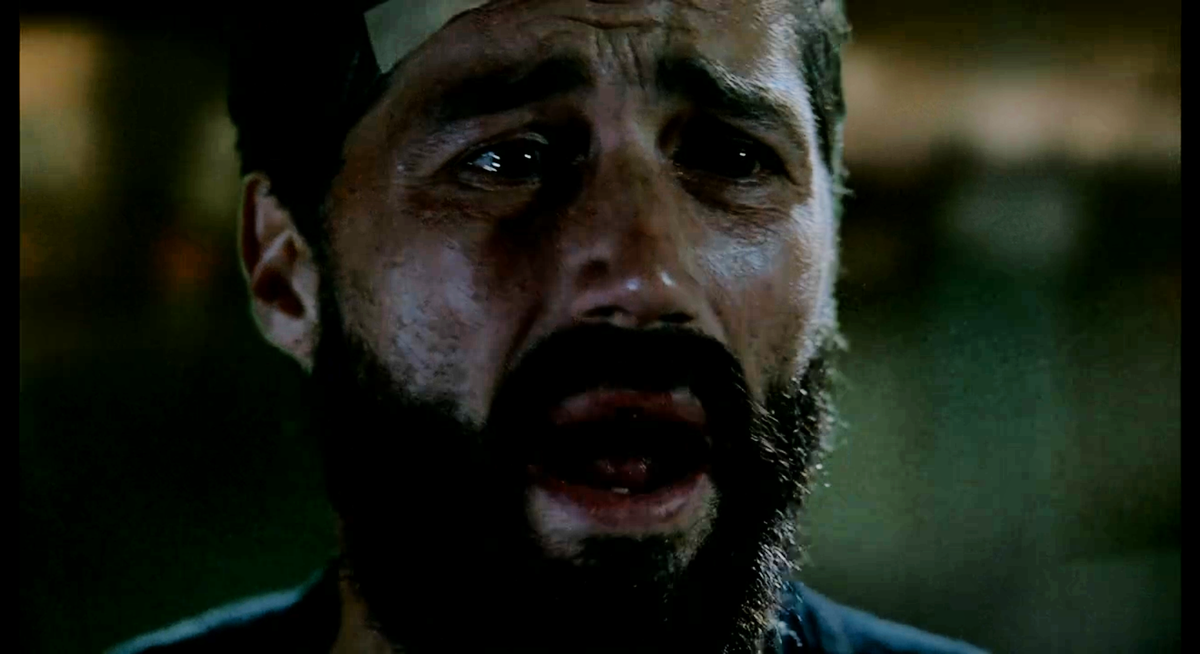
Once this was a show about survivors of a plane crash who landed on an island of mystery. It was all about whether or not those survivors would get rescued, and looking back at each of them, one by one, to learn how they had become the people they were when they arrived on the island.
It was a good show.
That show is coming to an end. It's going to be a different show now. It's time to go forward, as stories must.
But first we've got to go back.
Previously, On The Last 3 Whole God Damn Seasons Of LOST: When Oceanic Flight 815 crashed on the island, the survivors survived, as survivors often do. They had many adventures, and every week one survivor had a flashback, and a lot of these flashbacks were fascinating character studies that also revealed the focus character's mysterious pre-existing connections to their on-island struggles, or to other survivors, or even to the island itself. However, some flashbacks were about how they got their tattoos, or the time they robbed a bank to get a toy airplane, and by Season 3 more and more of them were about things we already knew about these characters from previous flashbacks, and this made the story stagnate, causing the audience do foolish things, like watch Heroes instead.
The Oceanics learned they were not alone on this island. There are at least two (2) polar bears, at least one (1) armed Frenchwoman with crazy eyes named Danielle Rousseau, at least one (1) Scotsman named Desmond Hume who was in a subterranean bunker entering a sequence into a computer to keep the universe from imploding, and a whole lot of island cultists, one faction of which is led by a spooky little dude named Ben Linus. The cultists ostensibly worship a godlike entity they called Jacob, but if one were to observe them carefully, one might increasingly come to the belief that they were instead following the lead of a demonic entity with a monstrous body of black smoke and the ability to appear in the guise of the dead in order to enthrall and corrupt Its targets.
The Linus faction of the Jacobian cult likes to do abductions of Oceanics. This is because they no longer are able to replenish their own numbers sexy-styles (ladies die in childbirth). This penchant for kidnapping has caused strife and fighting between the Jacobians and the Oceanics that is now about to reach its apex. The Jacobians are planning a full extraction of all the Oceanics' high-value targets—that is to say, those who are pregnant and those have given birth or been recently born—and to accomplish this, they've sent their fertility doctor, Juliet Burke, to infiltrate the Oceanics. But—surprise!—Juliet flipped sides, so now the Oceanics know the Jacobians are coming. Meanwhile, John Locke, an Oceanic who also appears to be following the lead of the black smoke, has been making a mostly successful bid to supplant Ben as leader of the Jacobians. Ben, who doesn't like this, shot Locke and left him on top of a pile of corpses that Ben himself created. It's rough times for Locke, but also rough times for Ben, who is still recovering from both cancer and the knowledge that on this island you only get cancer if the island gods want you to get cancer.
To only sort of change the subject, let's talk Desmond. Some weeks ago, he didn't enter the aforementioned sequence to prevent the universe from imploding, and the universe almost imploded, or maybe it did implode and now he's in a new universe. It's not clear. But one thing that is clear is that ever since the universe blew itself through him, he can see possible futures, isn't that nice? Another thing that's clear is that more than anything else he wants to get back to his lady love, Penny Widmore, and it appears that she is also looking for him. When he imploded/almost imploded the universe, it released an energy signature that she was watching for, and now a woman named Naomi recently parachuted onto the island. Naomi claims to be from a rescue boat that Penny sent, which means that the Oceanics are on the cusp of the thing that they—and their leader, Jack Shephard, in particular—most want and hope for: getting everyone off the island.
However, the only futures that Desmond sees that involve rescue involve the death of another Oceanic survivor, recovering heroin addict and onetime rock star Charlie Pace. This is unfortunate—particularly if you happen to be recovering heroin addict and onetime rock star Charlie Pace.
Subscription to The Reframe is free.
It's tough but fair. Subscribe now for free and never miss an essay. Pay whatever you want if you'd like to support the work of an independent writer.
O B S E R V A T I O N
We've arrived at the end of Season 3, and also one of my two favorite moments from the whole series. The two episodes we're covering here (including a season-ending 2-parter) are among my very favorite episodes.
As I alluded to earlier, the flashbacks—once the most unique aspect of LOST—were getting a little stodgy some 60 episodes in. You can only dig up so much mysterious/compelling backstory for each of these people. Good news, then! We'll be seeing the last of them, at least in the form we've known. More on that soon enough.
That's a lot of ado. I'd almost say we don't need any further ado.
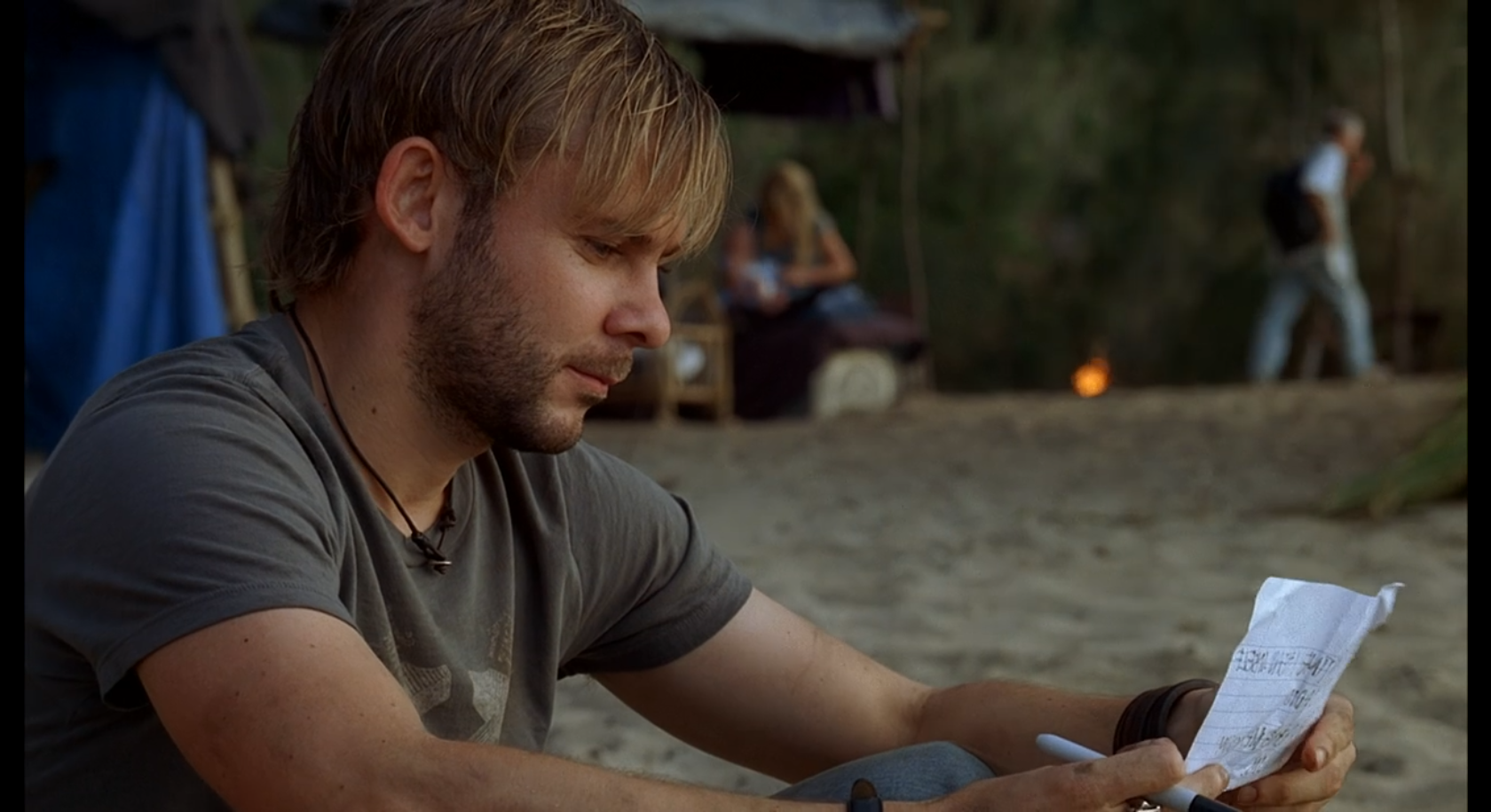
Episode 21: GREATEST HITS (Charlie): As a wise man once said, every beginning is some other beginning's end. As it is for bars at closing time, so it is for this version of LOST. It's time for saying goodbye.
Charlie—who knows via Desmond that he is fated to die—is coming to grips with his mortality by writing his "Greatest Hits," or the best moments of his life. Each of these moments affords him a brief flashback, and these vignettes serve as our farewell to not only Charlie, but the flashback structure itself. It's a truly lovely episode.
For a time—due to plot stuff—the Oceanics have become mistrustful of their leader, Jack, and verse visa, and so there's been a lot of secrecy and factionish behavior among the Oceanics for the last many episodes. Now they're back to sharing information with one another, sort of. As the action opens, Jack is leading about half our main characters on what appears to be an hours-long hike inland so that Jack can reveal his plan via needlessly dramatic tree-explosion. It turns out local crazy-eyed Frenchwoman Rousseau has teamed up with Jack and Juliet. She's been gathering dynamite from the Black Rock, which is a 19th-century slave ship that is inexplicably-for-now wrecked out in the middle of the jungle. Jack's idea is to hide the dynamite in their tents back on the beach, and then, when the Jacobians come to get their abduct on, they'll set off the dynamite and boom dead done. It's a good plan, though it seems like you could tell people about that on the beach and not waste time, or dynamite, or a tree, Jack.
Never mind. There remains the question of what to do about their best chance of rescue. Naomi has a satellite phone, but can't use it, because Ben (who does not want the island found, and is aware that Desmond imploding the universe makes this otherwise unfindable island findable) has been jamming all transmissions from a submarine station known as the Looking Glass, found on the ocean floor about a mile from shore. (He's also been lying about this to all his people, interestingly enough, telling them that the Looking Glass is flooded and transmissions were made impossible by the Swan Station collapse.)
Charlie, determined to accept his fate in service of his friends, volunteers to go on what only he and Des realize is a suicide mission, because Desmond confirms with Charlie that yes, he's seen another future Charlie-death. In this vision, Charlie swims down to the Looking Glass, finds the communications equipment, flips a switch, turns off the jamming signal, and then drowns ... but afterward, Desmond promises that Charlie's on-again-off-again island girlfriend Claire, and Claire's son, Aaron, both of whom Charlie clearly loves like they're his own family, will get on a helicopter and escape the island.
What Des says is not true, by the way. What I mean by this is, if you watch the whole show, it never happens. This suggests a thing or two about a thing or two. More soon.
Charlie makes heartfelt goodbyes with Claire and Aaron and best-buddy Hurley, which are made all the more heartbreaking by the dramatic tension between Charlie's knowledge of what is coming and the others' ignorance of it. Desmond convinces Charlie to let him tag along in the canoe out to the dive spot. Curiously, when they get there, he tries to convince Charlie to let him make the dive instead, but Charlie temporarily-but-harmlessly knocks Des out with a single blow from an oar (which works because this is network TV), weighs himself down, then jumps into the sea.
Charlie dives, deep, deep, deep. It seems he'll drown beneath the Looking Glass station, but finally he finds the moon pool and bursts to the surface.
He's immediately captured by two ladies toting guns.
End of Episode 21.
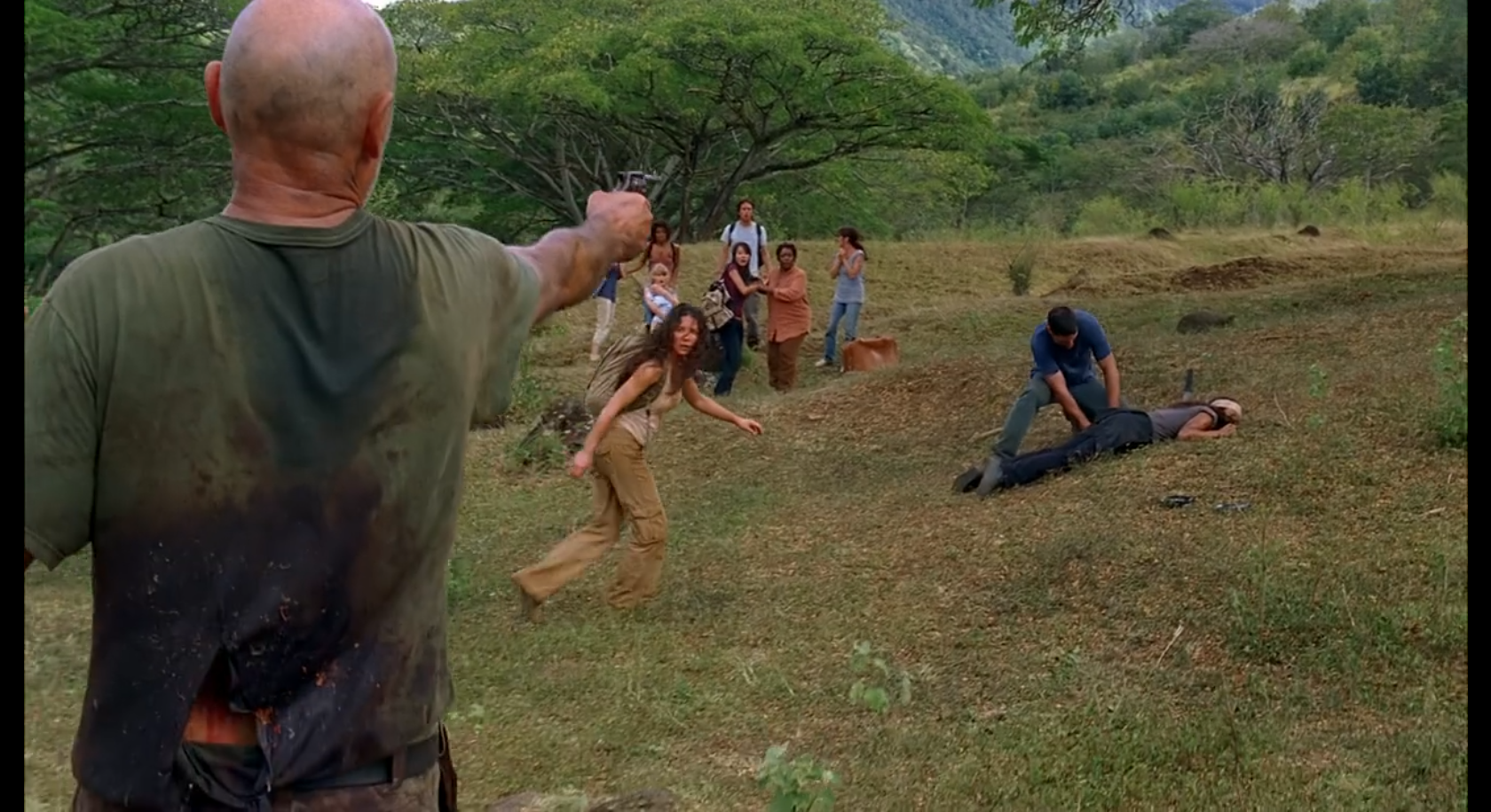
Episode 22-23: THROUGH THE LOOKING GLASS, PTS 1 & 2 (Jack):
Things have become really tough for Ben. In the previous episode, he discovered (via his lieutenant, the one-eyed Russian ex-soldier Mikhail) that Juliet has flipped the script on him, so he has flipped it right back on her, deciding to spring his trap one day early and catch the Oceanics with their dynamite around their ankles. Unfortunately, Ben's adoptive daughter Alex (who he abducted as an infant from Rousseau, because abductor's gonna abduct) flips the script right back on him, and sends her dull-witted but strong-shouldered boyfriend Carl via canoe to warn the Oceanics. Man! Ben just can't catch a break with all this script-flipping and ego tripping!
This leaves the Oceanics without time to rig explosive devices but aware that time is short, and I'll just mention one more time before letting it go that everything could be rigged already if they hadn't spent hiking all day to blow up a tree, Jack. A new plan is devised: The Oceanics will all flee their beach camp to the radio tower as planned (the better to make connection with Naomi's freighter once Charlie turns off the signal jammer), but leave behind their three best marksmen—that's Sayid, Jin, and Bernard—to shoot the dynamite piled next to the tents and turn their abductors into kibbles and bits.
Jack and the survivors leave the shooters behind and head out for the radio tower, waiting for Charlie to turn off the signal jammers, and once again (and for the last time) the Oceanic community heads out on a trek from their home as the music that's saved for just these moments plays. From here it's all driving action and major incident.
The plan goes off with a hitch, as plans often do. The Others gang arrive and creep like creeps to the tents. Sayid shoots and hits. Bernard shoots and hits. BOOM BOOM goes the dynamite, and Others hit the beach in gibbets, ploppity-plop, here and there and everywhere. Jin shoots and ... misses, and thus enough of Ben Linus' gang survives—including Season 2 Others frontman Tom Friendly, whose menacing figure we first saw abducting Walt from the raft—to capture the three Oceanic shooters. (This is one of the few misfires in these episodes for me. Come on, guys. Jin misses? The coolheaded corporate/mob enforcer? Not Bernard the dyspeptic dentist? Bullshit. Justice for Jin.)
Up in the jungle, the Oceanics only hear 2 BOOMs and correctly surmise that things haven't gone well. Sawyer, being the scoundrel with the heart of gold he is, goes back on a suicide rescue mission, bringing our total number of active suicide missions to two. He won't let Kate come along because he just loves Freckles too goddang much to allow it, but he's a real dick about it. However, he does let Juliet tag along, and so begins—unbeknownst to both of them and all of us—a romance that, at long last, we will actually care about. Also unbeknownst to them, Hurley follows, until his presence becomes beknownst and Sawyer scolds him away for being a liability in a fight. Charlie did the same earlier when Hurley wanted to come in the canoe, and both rejections focused on Hurley's weight, which sucks, and is especially sad—given that it will turn out to be their final interaction in life—in the case of Charlie. Even if both rejections were issued by people with ulterior motives that were ultimately protective, we feel really bad for Hurley, and hope that he gets better treatment later in the episode.
Meanwhile, back at the ranch pit full of Dharma corpses: Locke, who has been shot in the ribs by Ben, is busy dying. He's distracted from that mission by Walt, who appears in spooky fashion and tells him to get up, because "he's got more work to do." This is weird, because John isn't even on Walt's payroll, and that's going to cause a nightmare with HR. But also it's weird because Walt is taller than he should be, and even more also because Walt's not even supposed to be on the island anymore, fer crying out loud. What in the name of apparitions is going on?
Back on the beach, Bernard spills the beans under duress to his captors, so Ben learns about 1) betrayals by both Juliet and Alex; 2) the freighter offshore; 3) Naomi and her satellite phone; and 4) Charlie's mission to unjam transmission. Ben looks very worried. He sends Mikhail the Deathless Russian to the Looking Glass to deal with item 4, and takes Alex along with him to intercept Jack and the Oceanics at the radio tower to handle the rest of the list. He tells Richard to lead the rest of the sect to the not-to-be-seen-for-much-longer Jacobian temple. Ben's intent? "I'm going to talk them out of it." He's also apparently going to give his adopted daughter back to Rousseau, because he's sick of her sneaky ways. Pretty rich talk coming from Ben, in my opinion.
Ben meets the gang at the radio tower, and takes Jack to one side, telling Jack about the Dharma purge, when he killed everyone on the island (400 is the count he claims, which if true makes Ben easily the show's biggest murderer), and claims that if the freighter is contacted, that history will repeat and everyone on the island will die. In short, the freighter is no rescue boat, it is actually here with nefarious and murderous intent, and above it all mustn't be contacted. Jack isn't having it, mostly given the way Ben has of lying about everything always. Ben then threatens to have his men kill Jin, Sayid, and Bernard if Jack doesn't acquiesce. Jack is still having none of it. There's a tense showdown, while Ben points out that there's really nothing for Jack to get rescued to, and then over the walkie-talkie we hear 3 shots. Jin. Sayid. Bernard.
Jack makes his crazy eyes and beats the absolute christ out of Ben Linus, whose face had only just healed from the last time somebody (Sayid) beat the absolute christ out of him. One thing about Ben: he's very good at having the absolute christ beaten out of him. Jack could have saved his knuckles, though; as we learn, Ben's double-secret order was to only shoot into the sand for effect. Our friends live! The desperate Sawyer and Juliet rescue attempt is still on!
It is is just about to fail, however, when who should appear but Hurley on suicide mission number three! Driving the VW bus he fixed up! In that episode we all thought didn't matter! He totally runs over the most dangerous Other! He saves his friends and everyone! Sayid snaps somebody's neck with only his legs! Holy crap! Big hero moments abound—murderous and satisfying, just like McPoyles like it. Our heroes capture Tom Friendly, which hopefully gives them some much-needed leverage over Ben Linu—oh never mind, Sawyer shoots him, right in the season finale. "That's for taking the kid off the raft," Sawyer eastwoods. "Eck gnnnk," Tom replies, and dies.
Down in the pineapple under the sea, Sponge Charlie Music Pants gets interrogated by the ladies with guns, and Charlie confidently assures them that 1) he's going to succeed at dying, but first he's 2) kicking out their jams, motherfucker. Des wakes up in the canoe and swims down to the station, mostly because Mikhail is on the shore, shooting at him. With Charlie's help, Des is able to enter undetected, which comes in handy when Mikhail comes down a minute later to the Looking Glass and kills the two ladies on Ben's orders, because they are the only people who know the code to turn off the jamming equipment. One of the Looking Glass guards is killed immediately, and the other—Bonnie—is badly injured. Mikhail is about to finish the job when Desmond comes bursting out of his hiding place and harpoons Mikhail through the chest, Moby Dick-styles. "Call me Ishmael, bitch," Desmond says. (He doesn't, but should he have? Also no.)
Betrayed and dying fast, Bonnie gives Charlie the code—one that would be hard for any non-musician to decipher. Charlie enters the code, turns off the jammer, and reaches someone ... Penny! She's been trying all this time to make contact! The Oceanics are getting rescued!
But no. Penny doesn't know anything about no freighter. Ipso facto, the freighter is from somebody else. Ben may be telling the truth, but at the very least Naomi is lying. Ruh-roh.
At that moment, out the communication room's porthole window, Charlie sees Mikhail outside in the water, holding a grenade. He pulls the pin. Suicide mission number four! Charlie closes the door with himself still inside the communication room, preventing the rest of the station from flooding and saving Desmond. The explosion blows out the window, and, presumably, finally kills Mikhail, who will be seen in this series nevermore, so now we know: if you need to kill one-eyed Russians, use explosives. The communications room fills with water. With his final moments, Charlie writes a desperately-needed warning on his hand.
NOT PENNY'S BOAT
Des sees the message. Charlie sees that he sees, and floats backward, crossing himself.
Charlie dies. It's terribly sad.
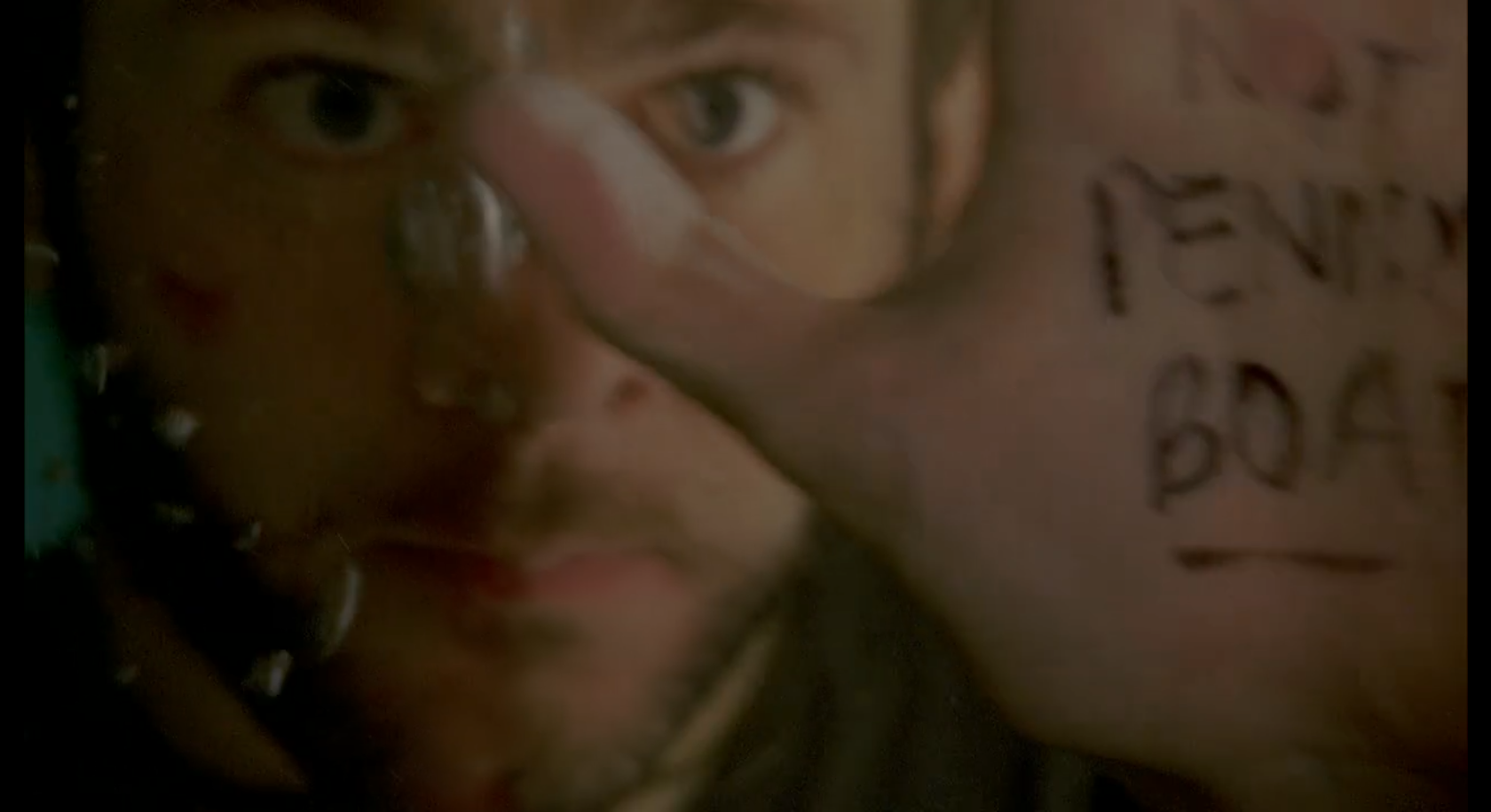
Back at the radio tower, the gang realizes the frequency is no longer being jammed. Naomi is making the call to the freighter (as Ben very convincingly shrieks at them to not make the call) when she's killed by a knife to the back, thrown by an injured but ambulatory John Locke, whose "work to be done" for Tall Walt apparently involved murder. The radio's on the ground when someone from the freighter answers. Locke points his gun at Jack and warns him not to pick it up. But Jack's come too far; he defies the order, and Locke can't bring himself to pull the trigger.
"You're not supposed to do this, Jack," he says, and slinks away.
Jack makes contact with the freighter. Everyone cheers except Ben. Ben bleeds.
All this is intercut by our flashback, focused on Jack, whose past off-island misadventures have involved him slowly spiraling into self-destruction as he contends with his pathological need to prove his worth via heroism to his abusive and alcoholic father, Christian. In the latest installment, Jack is ... quickly spiraling into self-destruction as he contends with his pathological need to prove his worth via heroism to his abusive and alcoholic father, Christian.
Jack's got a worse drinking problem than we've seen in previous flashbacks. He's also added a few things to the self-destructive mix, including a bad pill problem, an even worse beard problem, and suicidal impulses. We see him on a trans-Pacific flight to LA—one that, for a novel change, doesn't crash. A newspaper catches his attention—Jeremy Bentham has died. This isn't a name that means anything to us, but it sure seems to bother Jack a lot. We don't realize how much it bothers him until later. While driving home, Jack stops his car, climbs onto a bridge overpass railing and looks ready to find out how quickly he can get to the underpass some hundred feet below. This attempt at to-be-or-not-to-be is interrupted when there's a fiery car crash (caused, we'll learn, by the distraction of him up on the railing). Jack may want to die, but he can't not save the day if there is a day to save.
Back at the hospital, after an an awkward moment with his ex-wife, Sarah (she's still his emergency contact, and though concerned, she leaves, knowing he's unhealthy for her to be around), Jack becomes obsessed about fixing the people he just saved through the heroism of his surgical wizardry. Jack's gonna Jack. We've seen this before. Boy have we seen this before. We know exactly where this is going, we think. Crafty writers!
Later, Jack wears aviators and blasts Nirvana in his jeep on the way to the mysterious Jeremy Bentham's funeral, an event attended by nobody but him. "Friend or family?" the director asks. "Neither," Jack says, pill-dazed, but not pill-dazed enough for him. Standing right in front of the coffin in front of god and nobody else, he pops his last pill, meaning he's out of pills, so he goes to get more pills, because pills are pretty important to pill addicts. Back at the hospital, his obvious incapacitation earns him the suspicion of the head of surgery, who is really being an stickler asshole about a member of his staff being incapacitated by drugs. Paladin physicians can't be pill-popping punks, per this punctilious party pooper.
The head is, notably, no longer Jack's father, and we're meant to recall that Christian lost his job when Jack reported him for his negligent drunkery. Christian is apparently still on hand, though, at least as far as Jack is concerned. When accused by the new chief of practicing medicine while being a dangerous hobo, Jack mentions Christian as being someone currently in the hospital even more drunk-on-the-job than Jack is. This is a line of defense that demonstrates Jack was wise to become a surgeon rather than a trial attorney, but it's also a line that makes it clear that Jack believes that his father—who is very dead as far as any of us know—is alive, and also expects the head of surgery to think so, too. Also, Jack tries to fill a prescription in his father's name. This stuff is very interesting in my opinion. More soon.
Back in his (notably map-strewn) divorce apartment, Jack calls somebody who he says he knows told him to not reach out, and convinces whoever it is to meet him. We're meant to assume it's his ex-wife, Sarah, who we've already seen earlier in the episode. Crafty writers!
She arrives. It's not Sarah. It's Kate. She looks sad and wary and concerned.
"Still pulling people out of burning wreckage, huh?" she snarks.
And, if you're like me, this is where it all lands like a polar bear to the chest (my lovely and brilliant wife figured it out some 30 minutes before this, which is something she'll remind you of if I don't). This isn't a flashback. It's a flash forward. Off the island is present day now. The island is the flashback. The show has been training us to view time as fluid all along, and here it pays dividends, transforming the show from a look backward to a look forward. This isn't where Jack came from before the island, it's where he's going after it.
Where he's going after the island is pretty dark. Jack's been flying a lot, hoping the plane will crash. He doesn't care about the other people on the flight; he just wants to go back to the island. "We were not supposed to leave," Jack says. That's too much for Kate, who says she needs to go. "He'll be wondering where I am," she says, cryptically pronouning.
"We have to go back, Kate!" Jack shouts as she leaves. "We have to go back!"
End of Episode 22-23.
The Reframe is a reader-supported publication with a pay-what-you-want subscription structure. Free or paid, everyone gets the same newsletter, because those who can afford it pay. If you would like to support my work, and if you can afford to, consider upgrading to paid.
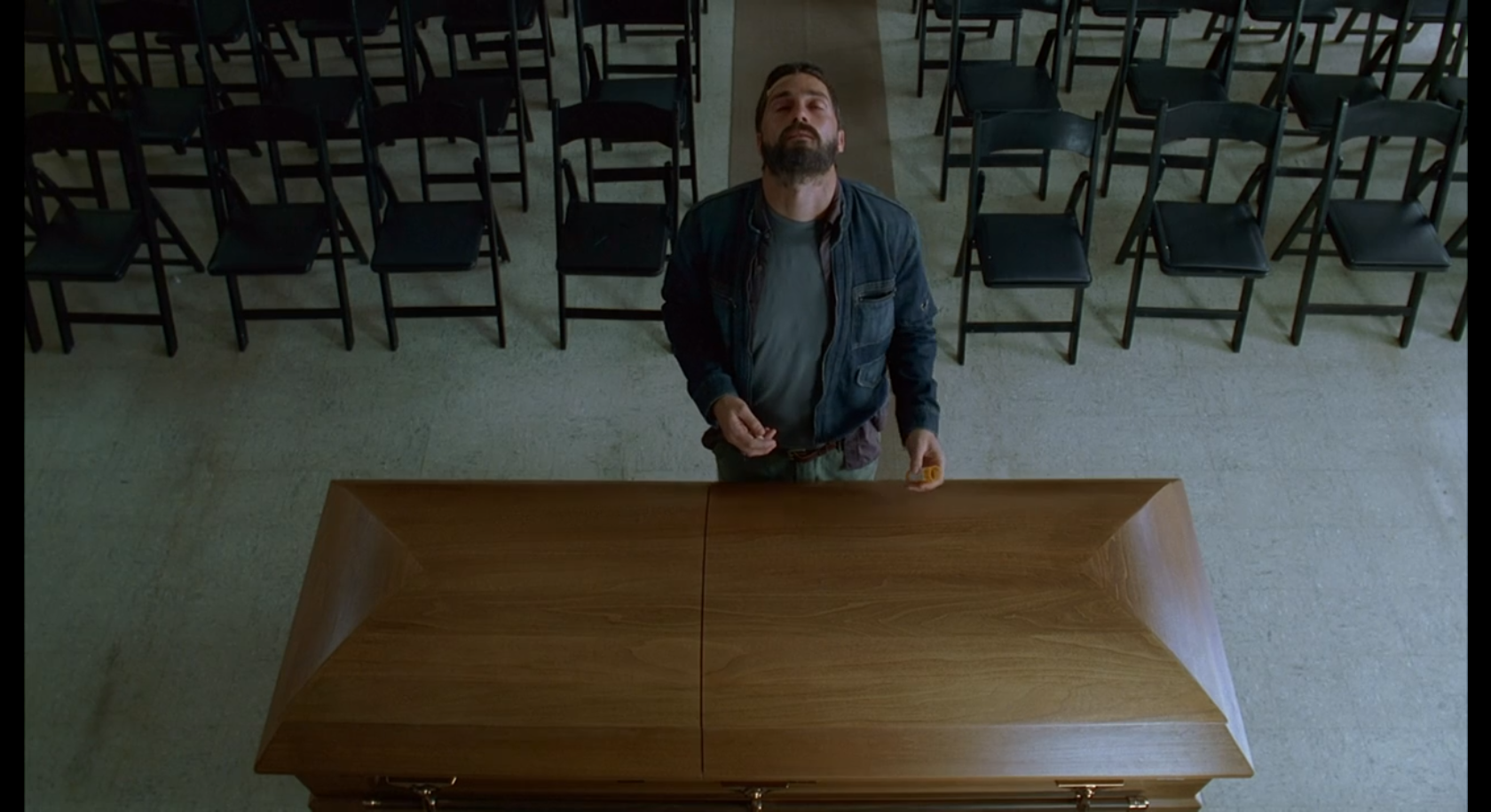
B E L I E F
If you won't eat observations, you can't have any beliefs. How can you have beliefs if you won't eat your observations?
Among a whole lot of lies, I believe I see a whole lot of truth.
1) My truth. My truth is that the flash-forward is maybe my favorite story move anyone has ever made in network TV. In a single deft stroke, this move from flashback to flash forward opened up the entire series by moving it from the innovative but limited thing it had been to the far more interesting thing that it could be, and it did it without betraying the core of what had made the show so enjoyable.
It's worth underlining the extent to which most of the first half of this show really did seem to be about a group of castaways securing rescue, and the extent to which all the mysteries they encountered mostly seemed to serve as obstacles to that end goal. Competing ideas—of The Island as an entity with a consciousness and a will, of a destiny that everyone who had come to the island was there to fulfill, that it was better for these people to seek their meaning on the island rather than try to escape—were all overtly present, but these sentiments were placed in the mouths of strange zealots like Mister Eko and Locke, or untrustworthy adversaries like Ben Linus, and, so our main protagonists discounted these ideas and their sources, in favor of a pursuit of the narratively expected goal of rescue. And, because of the way we tend to consume narrative fiction, because the protagonists discounted it, we were invited to discount it, too.
And then, in one scene, it all changed.
The very moment our heroes seem to have secured rescue—the main question, we think—it was all taken away, as a flashback that seems to be going in familiar directions turns out to be something else, and our narrators pull the rug out from under the whole story. Whatever rescue means, it's not good, and being on the island isn't the end of your involvement with The Island. We're left with the awareness that, on some level, Locke was right. So was Ben. Destiny is at play here. The Island calls those it chooses.
And those it chooses, it keeps, even if they leave, because The Island wants its own.
And that brings me to Ben Linus.
2) Ben's truth. It's strongly hinted that—in this case at least—Ben is telling almost the full truth to Jack in this episode. The freighter will be revealed to be sent from Charlies Widmore, who as far as we knew up until now was just the rich dickhead father of Desmond's love, Penny, an obstacle to these lovebirds' and their happily-ever-after ending. Most (but intriguingly not all) of the people Widmore has hired on this mission intend to murder everyone on the island. If they can, they're going to do it the same way Ben murdered Dharma: via the island-wide poison gas system. (Oh yeah, there's an island-wide poison gas system. Did I forget to mention? Ben sure did!)
Anyway. Ben's spent every moment since Desmond turned the failsafe trying to keep the island from being discovered by Charles Widmore. That's clear evidence that, contra Ben, the Swan incident has not made the island unreachable, but newly reachable, and newly findable.
And it's now clear, beyond any shadow of a doubt, that there are off-island factions aware of the island and seeking it. Ben knows, somehow, whose boat is parked offshore, and knows what those aboard intend, in a way that none of his people do. How does he know this?
Well. Ben Linus, as we're about to learn, is in thrall to The Adversary. I believe this explains it.
Which brings me to John Locke.
3) Locke's truth. Locke, meanwhile, has also been working very consistently since the start of the series to prevent anyone on the island from finding rescue. Unlike Ben, his concern seems less focused on defending his life and power from outside interloper, and more involved with ensuring that the Oceanics seek and fulfill their intended destinies, both individually and as a group. However, in his climactic showdown with Jack, Locke also seems to have some understanding of the inherent danger the freighter poses.
Locke doesn't seem to know every detail that Ben does. But Locke clearly believes that he is the Island's chosen, who can speak for it and act for it.
And I believe John Locke is, despite his best intentions, also in thrall to The Adversary, which suggests that the Adversary is feeding him information about the freighter and the nature of its mission.
Which brings me to Tall Walt.
4) Tall Walt's truth. This apparition is never explained, but I see two possibilities. This is either real Walt (possibly time-traveling from END-OF-SERIES SPOILERS), or it is The Adversary, using a familiar and trusted guise to manipulate Locke.
My belief is that it is The Adversary, activating Locke to help enact Its plan. Here's my case for it: Ben is under The Adversary's thrall and doing Its bidding. Tall Walt is getting Locke to do the exact same thing Ben wants—to prevent the island's discovery, by any means necessary, even murder. This seems unlikely to be the instruction that any Real Walt, time travelling or otherwise, would give Locke. Also, Locke is dying from what looks like a fatal injury, but is suddenly healed enough to pull himself out of the pit and hike all the way to the radio tower, and we have seen on many occasions that providing (or withholding) healing is in the purview of The Adversary.
Thus, I believe Tall Walt is The Adversary.
The problem with this theory is that it would break certain rules that have been (or will be) implied about The Adversary's ability to manifest—specifically, the seeming rule that The Adversary can only manifest as those who have died, and can only manifest physically as those who have died and whose remains exist on the island.
But again, these problems can become answers to other mysteries if we let them. Walt is special, we know—but how? We'll learn over time that the island is, among other things, a nexus for spiritual energy, which I believe is the reason The Adversary is able to manifest as the dead.
Walt's appearance here (or, as I have it, The Adversary's ability to manifest as him) is one of the few hints we ever receive about the nature of his "specialness." I believe the Tall Walt scene demonstrates that his abilities involve a particularly strong attunement with the spiritual energy of the island—one that The Adversary is able to access and utilize in this moment.
Anyway, that's what's going on with Tall Walt if you ask me.
And that brings me to The Adversary.
5) The Adversary's truth. What is Its plan in all of this?
Let's begin with things we don't know yet, but which we will learn. The Adversary wants to go "home." To do this, It wants to destroy the Island. Destroying the Island will destroy the universe—which is, by the way, why I believe that "home" to The Adversary is the "tohu va-Vohu" from the Genesis account, "the wild and waste" chaos before the universe existed. A state of non-being.
And there's a whole chain of each of The Adversary's desires and what we'll see It do to achieve those desires, and what that suggests about any number of other things, all of which we can (and eventually will) pursue to draw many beliefs.
For now I just want to ruminate over a seeming inconsistency, and before that, to return to the central question as regards The Adversary, which is why.
Why does The Adversary want to go home? Why does It want to kill Jacob and destroy the island and the universe?
We'll find out why eventually. It's because the entity I'm calling The Island wants to share the island and reality with human beings, and The Adversary believes that human beings are inherently corrupt, and therefore inherently unworthy of this honor. And, while The Adversary is almost infinitely powerful, It is not more powerful than The Island, which means it has to play by The Island's rules as long as The Island exists. So it needs The Island to die, and if doing so ends reality, well, that would be preferable to The Adversary to having to share reality with humans.
Now for the inconsistency. I believe The Adversary is manipulating Locke and Ben, both of whom It leads to prevent contact with the boat. It would appear to follow from this that The Adversary doesn't want Widmore's people coming to the island. However, most of the things we will see happen in The Adversary's plan directly flow from the freighter being contacted. So the question becomes: If the Adversary's plan depends upon the freighter making contact with the island, why does It lead Its allies to prevent that eventuality from happening?
I think there is a simple answer and a complicated one. The simple answer is that The Adversary is categorically opposed to any people coming to the island, or letting any people who arrive escape, and so these prohibitions act as something like standing orders for anyone, like Locke or Ben, who is being manipulated by It.
The complicated answer brings me to Desmond.
6) Desmond's ... truth? Desmond lies to Charlie, as I mentioned. Claire and Aaron do eventually escape, but not at the same time, and some Oceanics do indeed get aboard a helicopter, but Claire doesn't ever get on a helicopter, and those who escape don't do so via helicopter.
I believe a few things are going on here. The first is that Desmond knows—as we've already seen—that his reunion with Penny can't happen without Charlie dying, so he tells Charlie a half-truth—pulled from flashes he sees—that will convince Charlie to go along with a plan that is fatal to Charlie but aligned with his desires. We've also seen that Des is very conflicted about sacrificing Charlie on the altar of his own future happiness, which I believe explains Desmond waffling and offering to go on the dive himself.
The other thing that I think is happening is that Des, as I've covered at length in other entries, is a Constant—a lynchpin of reality for a massive branch of different dimensional possibilities. What this means is that Des is constantly aware of many different possibilities he might inhabit, and then choosing which set of possibilities he wants his consciousness to inhabit, at which point the ones he chose against fade away and new sets of new possibilities present themselves. What I believe we witnessed over Season 3 is Des saving Charlie until he found a death for Charlie that opens up hopeful possibilities. Heroically, Charlie chooses to find a possibility within that range that involves giving them the warning that saves them.
Another thing to highlight is the likelihood that, even if Desmond can no longer detect them, all of these other possibilities still exist, especially from the perspective of a multi-dimensional entity such as The Adversary, who I believe can see far more possibilities than Desmond, and far more clearly and persistently.
The complicated answer to the question about whether The Adversary wants the freighter contacted or not is: It doesn't care. To destroy The Island, It needs to destroy all the possible realities, so from Its perspective, It will destroy each one, all of which I believe It experiences. If the freighter is contacted—as it will be in the reality we see—then It has a very detailed plan in place to destroy all the realities that spring from that decision; and to enact it, it will need Ben and Locke in opposition to the freighter's mission, so It will tell them things that make that likely. If the freighter is not contacted, The Adversary has plans to destroy all the realities that spring from that decision, within which Ben and Locke's opposition to the freighter's mission may or may not be relevant, but which we will never see, because we are looking at the reality wherein the freighter is contacted.
This contemplation of many realities brings me back to flash-forward Jack Shephard and his odd statements about his father, Christian.
7) Christian. Jack really seems to think his father is around, doesn't he? I mean, he's drug-addled and drunk, and our storytellers might just be cheating a bit to fool us into thinking we're watching a flashback. but he sure seems to think so. And again, that seems unlikely, because of Christian's oft-mentioned deadness.
However, we'll learn soon that there are actually reasons for Jack to believe Christian is still around.
We do exist in a narrative world where reality appears to be—for some characters, at least—an experience of near-infinite fractal possibilities. And the episode is called The Looking Glass, isn't it? A reference to a permeable gateway between one world and another? And Jack really seems to believe that where he's come after leaving the island is someplace that's ... wrong.
And Jack really seems to think that Christian is alive and drunk somewhere in the hospital. He really seems to think that he can use a prescription written by a man who would have died, now that we know this to be a flash forward, a year ago or more.
What if, at some point in this narrative, we discover evidence that maybe, maybe, Christian actually is around?
Why that might mean that ...
Nah, I'll save that for another day.
L O S T
Next Time: The Oceanic Six
The Reframe is totally free, supported voluntarily by its readership.
If you liked what you read, and only if you can afford to, please consider becoming a paid sponsor. If you'd like to be a patron of my work, there's a Founding Member level that comes with a free signed copy of one of my books and thanks by name in the acknowledgement section of any books I publish.
Looking for a tip jar but don't want to subscribe?
Venmo is here and Paypal is here.
A.R. Moxon is the author of the novel The Revisionaries, and the essay collection Very Fine People, which are available in most of the usual places, and some of the unusual places. You can get his books right here for example. He is also co-writer of Sugar Maple, a musical fiction podcast from Osiris Media which goes in your ears. The island might let him die.

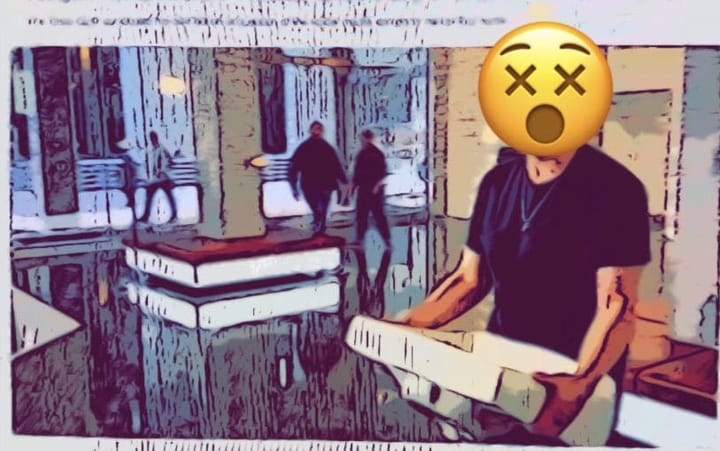

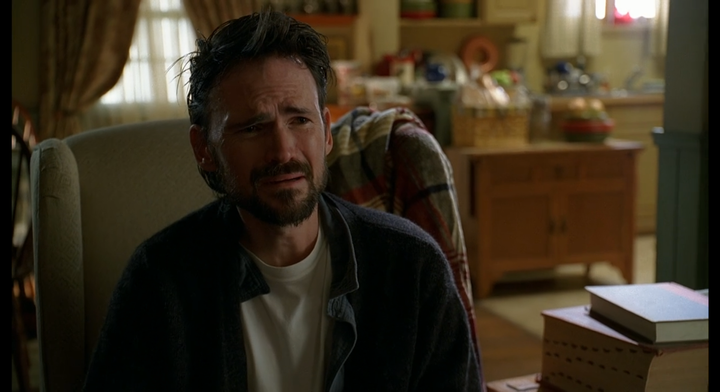
Comments ()